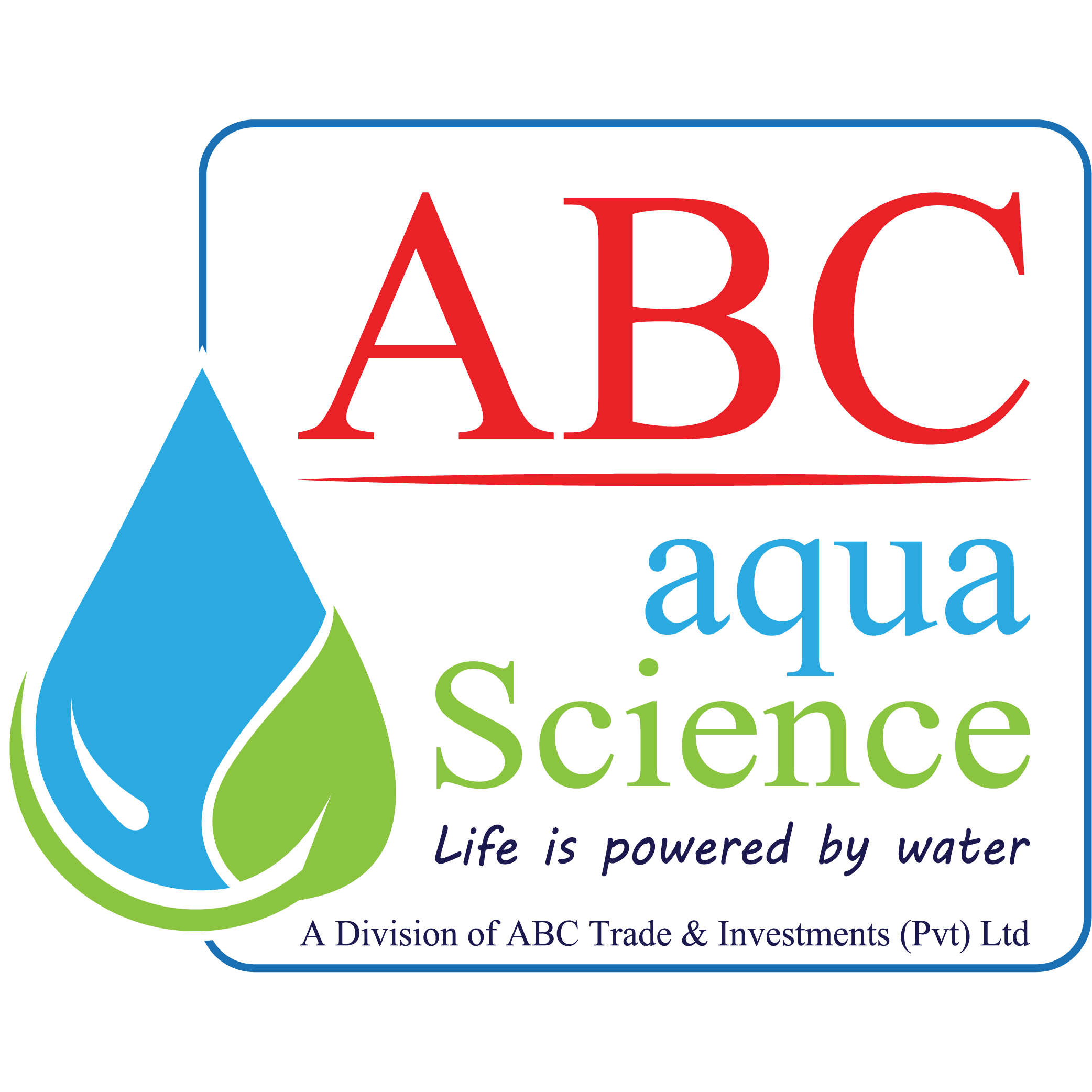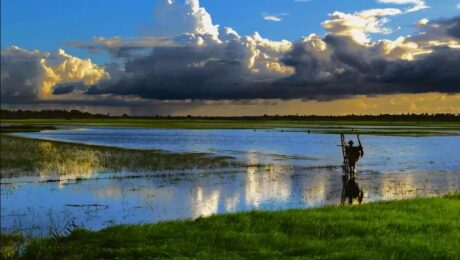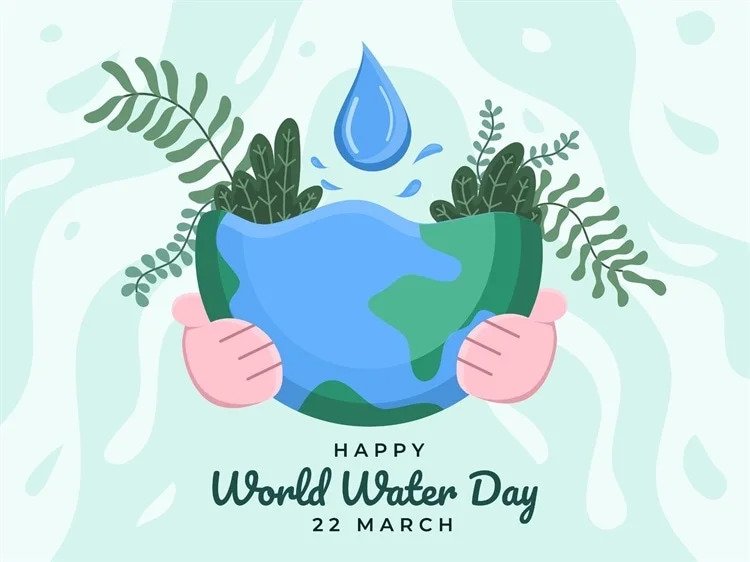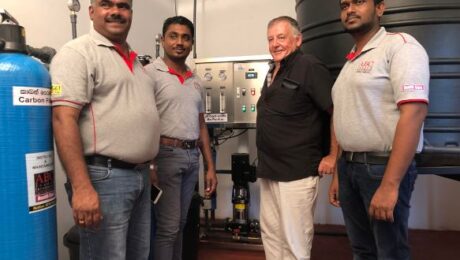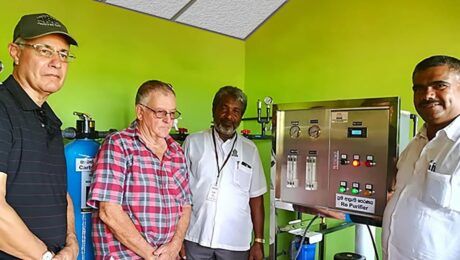Sri Lanka’s Water Purification and Treatment Industry: A Flowing Landscape of Trends
Sri Lanka, the resplendent island nation, boasts a vibrant water landscape. However, ensuring access to clean and safe water for its growing population poses a significant challenge. This is where the water purification and treatment industry steps in, playing a crucial role in safeguarding public health and environmental well-being. Today, this industry is undergoing a transformation, driven by evolving trends and promising opportunities.
Rising Demand for Safe Water:
At the forefront lies the ever-increasing demand for safe drinking water. Sri Lanka’s growing population, coupled with concerns about water quality due to factors like industrial pollution and agricultural runoff, aggravates demand. This has led to a surge in the adoption of water purification systems, both at the household and industrial levels. Reverse osmosis (RO) technology remains dominant, but innovative solutions like ultraviolet (UV) disinfection and gravity-based filters and conventional water treatment are gaining attraction, particularly in rural areas.
Tech-Driven Advancements:
Technology is revolutionizing the water purification landscape. Smart water purification systems with real-time monitoring and automated processes are becoming increasingly popular. These systems offer convenience, efficiency, and valuable insights into water quality, empowering users to make informed decisions. Additionally, the Internet of Things (IoT) is enabling remote monitoring and control of water treatment plants, optimizing operations and reducing costs.
Sustainability Takes Center Stage:
Sustainability is no longer a fringe concern; it’s a driving force in the industry. Consumers are increasingly opting for eco-friendly water purification solutions that minimize waste and energy consumption. This has led to the development of water filters with longer lifespans, recyclable materials, and energy-efficient technologies. Additionally, wastewater treatment technologies are improving, with a focus on resource recovery and reuse.
Government Initiatives and Regulations:
The Sri Lankan government plays a crucial role in shaping the industry’s trajectory. Initiatives like the National Water Supply and Drainage Board’s (NWSDB) expansion of piped water supply and stake holder supported water quality improvement are driving market growth. Additionally, government support for research and development in water purification technologies is fostering innovation.
Focus on Rural Communities:
While urban areas have shown significant progress in water purification, rural communities often lag behind. This presents a significant opportunity for the industry to address the unexplored needs of these populations. Affordable, low-maintenance, and community-managed solutions are crucial for ensuring equitable access to safe water across the nation.
Challenges and Opportunities:
Despite the positive trends, challenges remain. Affordability, particularly for advanced technologies, and access to spare parts and maintenance services can hinder wider applications. Additionally, raising awareness about the importance of water purification and responsible water usage is crucial for long-term sustainability.
However, these challenges are also opportunities. The industry can address affordability through innovative financing models and localized manufacturing. Building capacity for local services and maintenance can create jobs and empower communities. Furthermore, robust educational and awareness campaigns can promote responsible water use and encourage investment in purification solutions.
Conclusion:
Sri Lanka’s water purification and treatment industry is on a dynamic journey. Fueled by rising demand, technological advancements, and a growing focus on sustainability. This sector holds immense potential to ensure a future where everyone has access to clean and safe water. By addressing the challenges and seizing the opportunities, the industry can play a vital role in shaping a healthier, more sustainable future for Sri Lanka.
- Published in Uncategorized
Evaluating Groundwater Quality in Anuradhapura, Vavuniya, and Mullaitivu, Sri Lanka
Introduction
Groundwater is a vital resource in Sri Lanka, providing drinking water for a significant portion of the population, supporting agriculture, and contributing to the overall well-being of communities. This article delves into the state of groundwater quality in three key regions of Sri Lanka – Anuradhapura, Vavuniya, and Mullaitivu. These regions have unique geological, hydrological, and socio-economic characteristics that impact the quality of groundwater available to their inhabitants.
Geological and Hydrological Context
Anuradhapura, located in the North Central Province, is known for its ancient tanks and reservoirs that rely heavily on groundwater resources. Vavuniya, in the Northern Province, and Mullaitivu, to the north-east, are also largely dependent on groundwater for various purposes. These regions are characterized by their dry climate and low annual rainfall, making groundwater a critical source for sustaining livelihoods.
The quality of groundwater is closely tied to the geology and hydrology of an area. In these regions, the geological formations are predominantly composed of sedimentary rock, which can influence the mineral content of the groundwater. The shallow aquifers in these areas are highly vulnerable to contamination, and this poses a considerable challenge to the consistency of groundwater quality.
Groundwater Quality Challenges
1. Salinity: One of the primary concerns in these regions is salinity intrusions. As the water table drops due to over-extraction, saline intrusion becomes a severe issue, especially in coastal areas. High salinity levels make groundwater unsuitable for drinking and irrigation, affecting the livelihoods of local farmers and the health of the community.
2. Fluoride Contamination: Some areas in Anuradhapura have reported high levels of fluoride in ground water. Excessive intake of these contaminants can have severe health implications, affecting bones and teeth.
3. Microbial Contamination: Inadequate proper sanitation practices and the presence of open wells are factors contributing to microbial contamination. This leads to the spread of waterborne diseases and poses a significant health risk to the population.
4. Agricultural Chemicals: Pesticides and fertilizers used in agriculture have been detected in groundwater, which raises concerns about long-term exposure to these chemicals through drinking water consumption.
Efforts to Improve Groundwater Quality
1. Aquifer Recharge: Artificial groundwater recharge methods, such as the construction of percolation tanks and recharge wells, can help raise the water table and mitigate salinity problems.
2. Salinity Intrusion Barriers: Building barriers along the coast can prevent saline water from infiltrating the aquifers, preserving the quality of groundwater. This may be complicated and costly.
3. Education and Awareness: Promoting awareness about safe drinking water practices and the consequences of contaminating groundwater is essential. Encouraging communities to use sanitary latrines and avoiding open defecation can significantly reduce microbial contamination.
4. Water Quality Testing: Routine water quality testing and monitoring programs are essential. This helps identify areas with contamination issues and enables targeted remediation efforts to be validated.
5. Regulatory Measures: Implementing regulations on the use of agricultural chemicals and groundwater extraction can help protect water resources. Sustainable groundwater management practices should be promoted.
Conclusion
Groundwater quality in Anuradhapura, Vavuniya, and Mullaitivu is a matter of concern, considering the vital role, the groundwater plays in these regions. Addressing the challenges related to salinity, contamination by chemicals and microorganisms, and educating the local population are essential steps in preserving the health and well-being of the communities. Sustainable groundwater management practices, along with the involvement of local communities, government agencies, and non-governmental organizations, are pivotal in ensuring access to safe and clean groundwater for the present and future generations.
- Published in Uncategorized
Navigating Troubled Waters: Current and Future Challenges for Water Resources Management
Introduction
Water is the lifeblood of our planet, essential for all living organisms and vital for sustaining ecosystems, agriculture, industry, and human life. However, as the global population continues to grow and climate change disrupts traditional weather patterns, water resources management is facing an array of challenges. In this blog, we will delve into the current and future challenges for water resources management and explore potential solutions to ensure a sustainable water future.
Current Challenges
- Water Scarcity: Many regions around the world are already facing water scarcity issues. Increased demand for water, driven by population growth and industrialization, has resulted in over-extraction of groundwater and the depletion of surface water sources. Climate change exacerbates this problem by altering precipitation patterns and increasing evaporation rates.
- Pollution: Water pollution from industrial, agricultural, and domestic sources threatens the quality of available water resources. Contaminants such as chemicals, heavy metals, and pathogens can make water unsafe for consumption and harm aquatic ecosystems. Managing and mitigating pollution is a significant challenge.
- Aging Infrastructure: In many developed countries, water infrastructure is aging and in need of significant investment and maintenance. Leaking pipes and outdated treatment facilities result in water losses and compromised water quality.
- Water-Energy Nexus: Energy production relies heavily on water, and water treatment consumes a substantial amount of energy. This interdependence poses challenges in optimizing resource use and minimizing environmental impacts.
Future Challenges
- Climate Change: The most pressing future challenge is climate change. Rising temperatures, altered precipitation patterns, and increased frequency of extreme weather events can disrupt the availability and distribution of water resources. Adaptation strategies are essential to manage these changes effectively.
- Population Growth: The global population is expected to continue growing, putting more pressure on already stressed water resources. Ensuring equitable access to clean water for all while meeting increased demand is a complex challenge.
- Ecosystem Health: Water resources management must also consider the health of aquatic ecosystems. Balancing human needs with the ecological requirements of rivers, lakes, and wetlands is essential to maintain biodiversity and ecosystem services.
- Technological Advancements: While technology can help address challenges, it can also present new ones. For instance, desalination technology can provide freshwater in arid regions, but it has environmental and energy implications that must be carefully managed.
Potential Solutions
- Efficient Water Use: Promoting water-efficient technologies and practices in agriculture, industry, and households can help reduce water demand. Improved irrigation techniques, wastewater recycling, and reduced water-intensive crops are some examples.
- Infrastructure Investment: Governments and private entities should invest in upgrading and maintaining water infrastructure to reduce losses and improve water quality. This includes repairing leaking pipes, modernizing treatment plants, and implementing smart water management systems.
- Water Policy and Governance: Robust water governance frameworks, clear policies, and effective regulations are crucial for equitable and sustainable water management. Collaboration among stakeholders, including governments, communities, and industries, is vital.
- Climate Resilience: Developing and implementing climate-resilient water management strategies is essential. This includes diversifying water sources, enhancing water storage capacity, and planning for extreme weather events.
- Education and Awareness: Public awareness and education campaigns can encourage responsible water use and pollution prevention. Citizens’ understanding of their role in water conservation is pivotal.
- International Perspective: Highlight the global nature of water challenges. Discuss how these issues transcend borders and require international cooperation, especially when dealing with shared water bodies and transboundary rivers.
- Innovative Technologies: Expand on technological advancements by mentioning emerging technologies like artificial intelligence and remote sensing, which are being used for more efficient water monitoring and management.
- Community Engagement: Stress the role of local communities in water management. Engaging and empowering communities in decision-making processes can lead to more sustainable and equitable outcomes.
- Resilience and Adaptation: Discuss the importance of building resilience in water systems. This includes not only adapting to climate change but also anticipating and preparing for potential crises.
- Global Initiatives: Mention international organizations like the United Nations and their initiatives related to water sustainability, such as the Sustainable Development Goal 6 (SDG 6) on clean water and sanitation.
- Monitoring and Data: Emphasize the significance of data collection and monitoring in making informed decisions. Accessible, accurate, and up-to-date data are crucial for effective water management.
Conclusion Water resources management faces an array of current and future challenges, from water scarcity and pollution to climate change and population growth. Addressing these challenges requires a multidisciplinary approach involving governments, industries, communities, and individuals. By adopting efficient practices, investing in infrastructure, and prioritizing sustainability, we can ensure that future generations inherit a world with access to clean and abundant water resources. The time to act is now, as the health of our planet and the well-being of its inhabitants depend on it.
- Published in Uncategorized
5 Reasons Why a Water Filtration System is Superior to Bottled Water
In an era where clean and safe drinking water is a necessity, many people rely on bottled water as a convenient option. However, with increasing concerns about environmental impact, cost, and the quality of bottled water, a drinking water filtration system emerges as a better alternative. This article explores five compelling reasons why a drinking water filtration system is superior to bottled water.
- Environmental Sustainability: One of the most significant advantages of a drinking water filtration system over bottled water is its positive impact on the environment. Bottled water production generates a substantial amount of plastic waste including current concerns of micro plastics that ends up in landfills and oceans, contributing to pollution and harming wildlife. In contrast, water filtration systems significantly reduce plastic waste as they eliminate the need for single-use water bottles. By choosing a filtration system, individuals can actively contribute to reducing plastic pollution and conserving natural resources.
- Cost-Effectiveness: Over time, relying on bottled water can prove to be costly. Purchasing individual bottles or bulk packs can add up to a significant expense, especially for households or businesses with high water consumption. On the other hand, investing in a drinking water filtration system offers a cost-effective solution. While the initial setup may require an upfront investment, the long-term savings on bottled water purchases will quickly outweigh the initial cost, making it a financially wise choice in the long run.
- Improved Water Quality: Water filtration systems are designed to remove impurities and contaminants, ensuring that the water you drink is of the highest quality. Municipal tap water may contain traces of chlorine, sediments, and other undesirable dissolved content such as hardness. Filtration systems, depending on their type, can eliminate or significantly reduce these contaminants, providing a clean, fresh, and pure taste. Additionally, some filtration systems incorporate additional stages like activated carbon or reverse osmosis to further enhance water quality and taste.
- Convenience and Accessibility: Having a drinking water filtration system in your home or office provides unparalleled convenience and accessibility. No longer will you have to lug heavy water bottles from the store, worry about running out of bottled water, or wait for deliveries. Filtration systems ensure a continuous supply of clean water, available at your fingertips. This accessibility encourages people to drink more water, promoting overall health and well-being.
- Customization and Flexibility: Unlike bottled water, which comes in limited choices, a water filtration system allows for customization based on individual preferences and needs. Different types of filtration systems can cater to specific water concerns, such as chlorine taste, hardness, or microbial contaminants. Homeowners can choose from various filtration methods, like activated carbon, UV purification, or reverse osmosis, based on their water quality requirements. This customization ensures that you get water that is tailored to your liking, which can ultimately lead to increased water consumption.
Conclusion:
In conclusion, a drinking water filtration system emerges as a superior choice over bottled water for several compelling reasons. Its positive impact on the environment, cost-effectiveness, improved water quality, convenience, and customization options make it an excellent investment for individuals and families seeking a sustainable and healthier way to access clean and safe drinking water. By making the switch to a water filtration system, you not only benefit yourself but also contribute to a greener and more sustainable future for our planet.
- Published in Uncategorized
World Water Day! -2023
This year’s theme for World Water Day is “Accelerating Change to Solve the Water and Sanitation Crisis.”
For the past nine years, we have been providing drinking water and wastewater treatment solutions to the community.
We have a highly motivated team that is always ready to provide the best services to our customers.
We are dedicated to ensuring your health and safety through our water-related solutions.
We consider your family’s safety a combination of your responsibility as well as our moral duty!
Keep good health. Take it easy and enjoy life!
ABC Trade & Investments Aqua Science Division awareness!
- Published in Uncategorized
ABC Trade & Investments Healthcare Division provides clean drinking water to villages and communities
Every year, World Water Day, which falls on 22 March, attempts to create awareness and inspire action in trying to tackle the prevailing water crisis. According to the World Health Organization, 2017 saw over 663 million people living without a safe supply of drinking water close to home. Sri Lanka in particular is no stranger to the crisis. In 2014, nearly 55% of Sri Lankans relied on shallow and deep wells and streams for drinking water.
Research goes on to show that the prevalence of Chronic Kidney Disease (CKDu) is approximately 15.1–22.9% in some districts. Providing solutions to villages and communities, ABC Trade & Investments have been able to reach over 10,000 households so far as part of their commitment towards fulfilling Sustainable Development Goals in ensuring that everyone has access to safe water by 2030.
The theme for World Water Day 2018 is ‘Nature for Water’ – exploring nature-based solutions to the water challenges we face in the 21st century. According to the official United Nations World Water Day initiative, damaged ecosystems affect the quantity and quality of water available for human consumption. Today approximately, 2.1 billion people of the 7.6 billion, live without access to safe drinking water at home. The lack of access in turn affects their health, education and livelihoods.
“One of the main problem in Sri Lanka is the lack of awareness in proper filtration systems and non access to clean drinking water, there has been a steady rise in water related disease, kidney related diseases particularly CKDu. Our mission is to reach out to as many villages, towns and cities as possible and create a decentralized system that will ensure access to clean drinking water,” said ABC Trade and Investments CEO Amalrajah Jayaseelan.
The National Water Supply and Drainage Board has been an imperative partner recommending and supporting the initiatives of ABC Trade & Investments and making their projects a reality. With funding from individuals such as Scott Walker, an Australian donor who has extended his financial support to over 80 village water purification projects in Sri Lanka, and with like-minded individuals and organization of local and international and have made a significant impact in providing clean and safe drinking water to over 200 villages as a CSR initiative.
It’s time for Sri Lanka to step up and take initiative in providing access to clean drinking water. Those who suffer the most, unfortunately belong to rural communities, which is also a significant amount of our population. Without access to proper infrastructure, clean water, sanitation and medical facilities, the primary victim, usually 30-60 year old farmers, also lose out on their principal and sometimes only means of livelihood, agriculture.
ABC Trade & Investments Ltd., was incorporated in 1997, is focused in the business area if ICT, healthcare, water purification, printing, renewable energy, lighting and is a recognized member of the Sri Lanka Computer Vendors Association and the National Chamber of Commerce of Sri Lanka. ABC Trade & Investments Ltd., Healthcare Division is in the water purification business for the past few years with an installation base of over 5000+ water purification equipment ranging from Domestic solutions to community based RO plants and custom designed water purification solution to Government, Commercial and private sector organizations and expanding its scope to waste water management and waste water treatment.
- Published in Uncategorized
Australian Philanthropist Sponsors Water Purification for 100 Villages working with ABC T & I
We often hear of benefactors doing great things and yielding results that combined organisations have not had the ability to do. However, it’s uncommon to find such benefactors who prefer to remain in the sidelines of media attention and continue their work unknown to most. One such benefactor is Scott Walker, a successful businessman and entrepreneur from Australia who first visited in 2010 and has been involved in many charitable activities since then.
Like most good things, Walker’s introduction to Sri Lanka also happened by chance. He was en route from Australia to England on a ship when they docked on the island for a day. It was then Walker first visited the Colombo and Mount Lavinia areas and felt a strong sense of attachment and was convinced that he was “Sri Lankan in a past life!”
Explaining on his philanthropic activities in the country, Walker said, “My work first started with funding three orphanages in Jaffna, Kilinochchi and Badulla where children learn English thrice a week. I then provided funds for the maintenance of CCC Foundation’s CCC House project, a 190-bed transit home for cancer patients in Maharagama. On one of my visits, I was returning to Australia and read about the kidney disease problems in Sri Lanka and coincidentally, the Moorooka Lions Club was conducting an appeal to raise funds to install a Reverse Osmosis (RO) plant in two villages in Anuradhapura, for which I made a contribution. As a result of this experience, I joined Bill Deutrom, Chairman of the Federation of Sri Lankan Organisations of Queensland and Amalrajah Jayaseelan, Managing Director of ABC Trade and Investments, to provide 100 villages with RO plants.”
The 100 village project required a reputable company to provide and install the RO plants and also ensure the maintenance of the equipment. Walker reached out to ABC Trade and Investments and a successful partnership was formed. The company created a programme in consultation with the National Water Supply and Drainage Board to identify the most deserving rural villages with high density ofCKDu(chronic kidney disease of unknown etiology) patients, and also train villagers in the area in all aspects of maintaining these RO plants, thereby also creating a sense of responsibility and ownership among them.
While water purification has been one of the main areas that Walker contributedwith over 100 million rupees, he has also done some work with the Foundation of Goodness and their Village Heartbeat project in Jaffna that provides locals English lessons, IT training, women’s empowerment programmes, vocational training and more.
On occasion, Walker also steps in during at the time of natural disasters. One such time was during the Mutwal floods from a few years ago where he contributed towards the re-establishment of an area by providing essential food, replacing household furniture and by providing school books and bags for children.
Mr Walker will continue his philanthropic work in Sri Lanka. He has grown to love the people, the culture and the beauty of the country and hopes that his contribution to Sri Lanka will make it a better place for those he has helped.
- Published in Uncategorized
